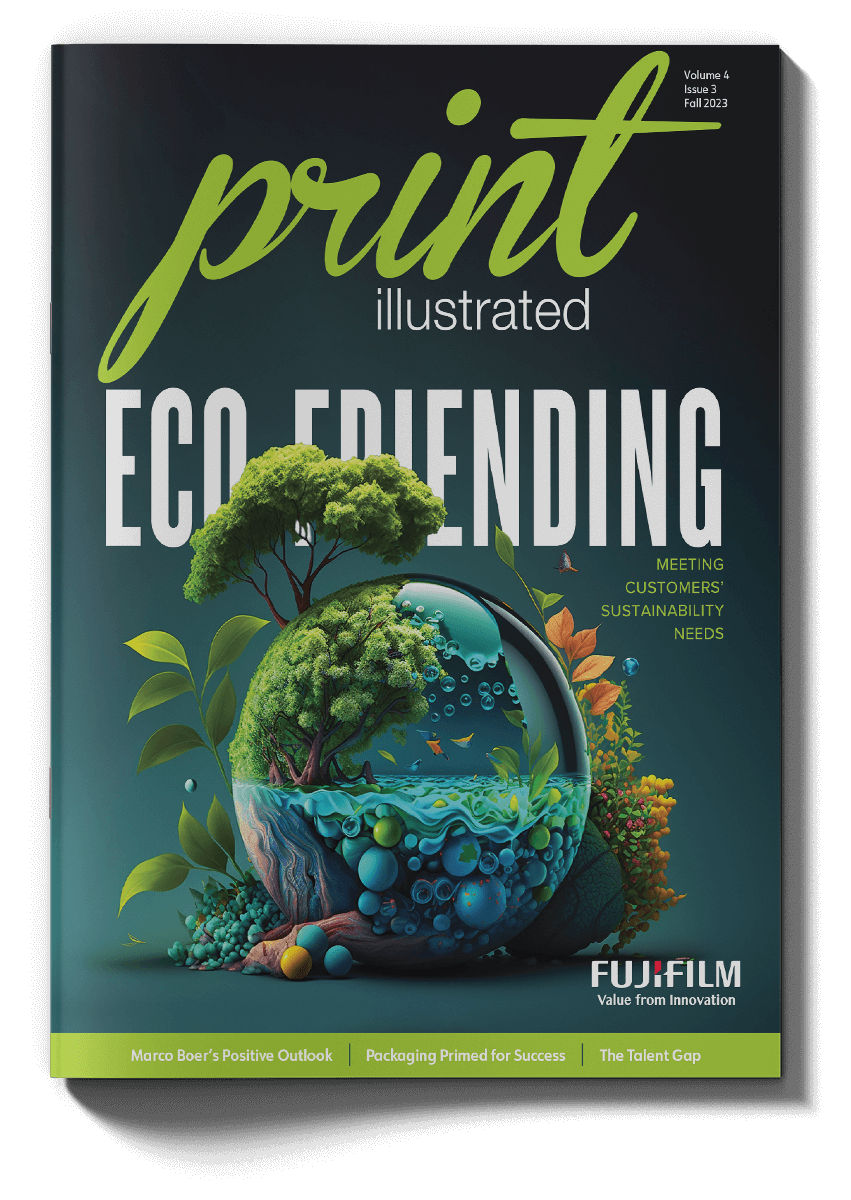Attracting the next generationIn 2016, Modern Litho began utilizing the Predictive Index, a behavioral assessment that helped the commercial printer and direct mail service provider gain insight into behavioral patterns of current and prospective employees. The Modern Litho team also used the tool to manage its daily interactions in group settings in the workplace. Since then, it has incorporated the Index into its onboarding program.
The results of the assessment help Modern Litho team leads understand individual behaviors so that they can effectively communicate one on one with employees to optimize training and build a productive environment.
Modern Litho VP of Human Resources Lauren Bauman says that it is no surprise that technology continues to become such a critical part of our everyday lives—one that is enhancing the learning and development of all its employees. “Some may think that the printing industry is phasing out in a world where technology and digitization have seemingly become the future generation’s main source of obtaining information. In reality, that couldn’t be further from the truth. It has been proven that print is the most sought-after form of media and is still relevant in today’s modern world.”
The challenge, as industries everywhere are discovering, is to find the right mix of talent and desire needed to pass the torch down the line. Today, the skills needed for success have become more complex because the ideal candidates are both tech-savvy and mechanically inclined, which is still very necessary to be able to problem solve, effectively troubleshoot and perform maintenance. As the overall commercial print workforce is aging, there has never been a more critical time to address this issue. According to the U.S. Bureau of Labor Statistics, the average age for printers in the U.S. is 47.9 years, with most employees between 45 and 64 years old.
“While the process of growth for us has been successful, the goal is to train skilled employees who share the same vision and feel a vested interest in the company.”
– Lauren Bauman, VP/HR, Modern Litho
For its part, Modern Litho has implemented several strategies that are not only designed to attract future employees, but also to retain them. From attending local job fairs, to sharing current events on social media and staying involved in the local community, the company constantly is researching and utilizing different methods to capture the interest of quality minded people who desire to join a growth-oriented company.
One of the initiatives it has added is to help new employees succeed in their careers by offering a formal onboarding program revolving around specific training and one-on-one interactions. The move helps employees build relationships as well as progress in their printing journey. “We have had many long-tenured, skilled employees, but the myth that the printing industry could phase out has affected the younger generation’s interest in obtaining an occupation that requires specific skills and training to succeed in the industry,” Bauman says. “In the past, the printing process was very manual and with technological advances, the process has transitioned to be more automated.”
Even though Modern Litho has taken steps to build a continuous learning culture, there have been challenges finding effective and relatable programs that support the necessary training needed for skilled positions. “We have core values by which we all live and work, and without clear instruction or expectations, reaching the level of excellence that we strive for can be difficult,” Bauman says. “We have been gradually overcoming this hurdle by working with each department to formally develop internal operating procedures while keeping abreast of industry updates.”
One avenue of hope is things like offering apprenticeship programs for both young people and current employees interested in progressing in this industry. Bauman says the initiative not only supports the mission of employing quality-focused individuals, but also encourages confidence in employees resulting in self-improvement. “While the process of growth for us has been successful, the goal is to train skilled employees who share the same vision and feel a vested interest in the company. It can be difficult for some individuals to understand and support the overall perspective of growing with a company both in skill and compensation.”

Into the Great Wide Open
In the beginning of 2023, seasoned industrial sales professional Steve Bates acquired CityPress Inc., a Waukesha, Wisconsin, commercial printing company with a longstanding reputation for quality and service. Among other things, Bates was drawn by the care the owners of CityPress put into the company over the past 50 years.
Part of the steps Bates took when he acquired the company was to embrace its team of longtime employees, along with making solid technological investments. Moving forward, Bates is keeping a keen eye on what the future holds for his workforce. First and foremost, as owner and president, he is seeking people of good character and work ethic, including those who might be new to the print industry, like him.
“I think the talent availability for experienced production and sales is very limited in our industry,” Bates says. “Prepress and design talent, at least here locally, are available through junior college programs. I’m looking for salespeople at all stages of their career. It’s the same for production. Lack of experience in our industry is not a barrier to entry. As long as they communicate well, they can work as part of a team, and are trainable, we will give them an opportunity.”
“Technology plays a huge role, not just for our organization’s profitability and ability to remain relevant to our customer base, but also in attracting new hires.”
– Steve Bates, President, CityPress
As for his existing team, Bates continues to initiate new ways of approaching traditional ways of doing business. For example, in a recent chat with the longest tenured salesperson on his team, they discussed how conversations were left with customers. Bates asked if he ended a conversation by saying, “Thank you so much for the business. We really appreciate it. We do many types of printing projects so if we can help you in any way, we’d love to do so.”
The salesperson looked at him and said, “I don’t think I ever have.”
Thirty minutes later, the salesperson, taking Bates’ advice, came into his office and said he had tried the closing with a customer, who in turn ended up committing $50,000 additional work for the year. It was business that CityPress had never had before. The approach set the example—one that Bates says is creating an atmosphere of more open-mindedness and attention to new details from the whole company.
It is the atmosphere he believes is needed in the new print landscape, where technology and the search for new, more effective ways of doing things evolves every day. “Technology plays a huge role, not just for our organization’s profitability and ability to remain relevant to our customer base, but also in attracting new hires. Investment in advanced technology demonstrates an investment in the future. It provides a stable and sustainable work environment.”
As companies like Modern Litho and CityPress prove, investing in the future—in resources, technology and especially people—is key. In this technology-rich era, the need to find human assets who can steer the ship should be at the top of everyone’s to-do list.

